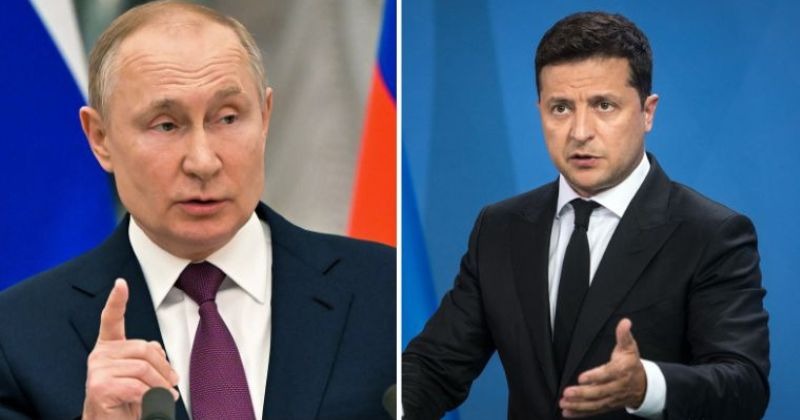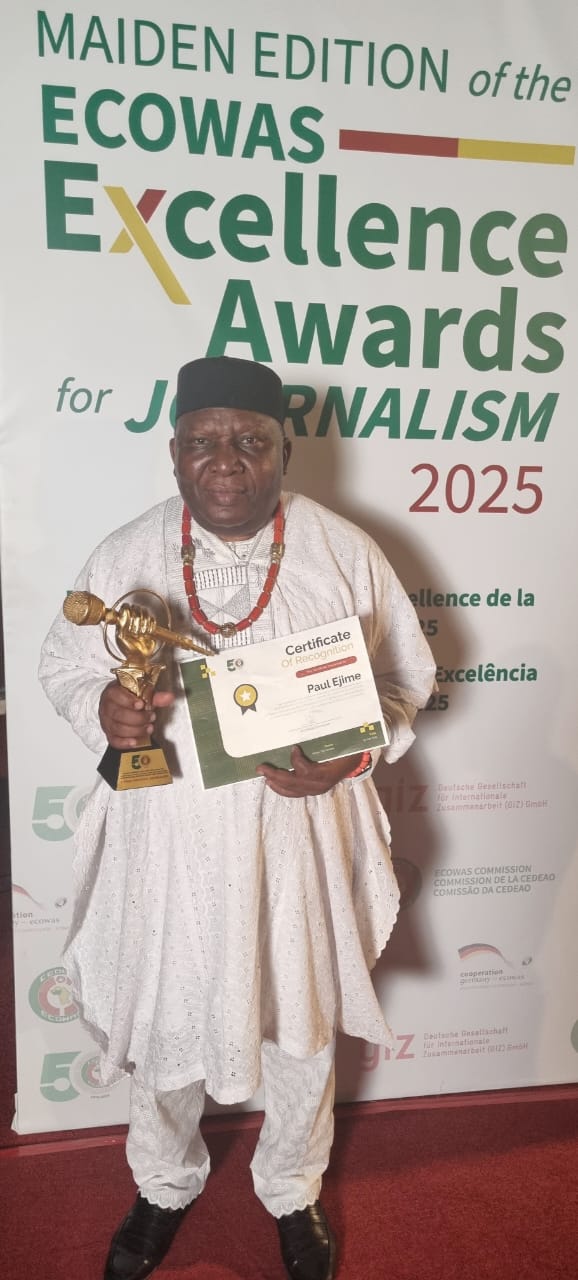By Paul Ejime
So much has been said and written about the Russian invasion of neighbouring Ukraine on 24th February 2022. Unfortunately, the narratives have been largely monolithic and unbalanced, lacking in editorial rigour, investigative journalism and critical interrogation by the mass media on both sides of the conflict.
The World has unashamedly been treated to a cocktail of lies, fake news, propaganda and unethical reportage by Russia’s mainly state-controlled media and a disappointing so-called liberal Western media.
Reputable journalism schools teach and place a high premium on the professional code of ethics, including the responsibility of professionals to expose government interference, censorship and how to safeguard objectivity principles. Objectivity can be tricky, possibly resulting in being “subjectively objective.” Even so, it remains an ideal and a goal worth pursuing.
The mainstream media have conveniently christened the Russia-Ukraine conflict a “war,” but with most known theories and concepts of media professional ethics on war/conflict reporting either redefined or jettisoned. As happened with the COVID-19 pandemic, where politics hijacked the narratives at the expense of science, politicians have also seized the initiative and controlled the media over what is being dished out as news on the Russia-Ukraine conflict.
The invasion of a sovereign nation by another is not only against international laws and instrumentality but remains condemnable. So, Russia is wrong to have invaded Ukraine as it was in annexing the Crimean Peninsula from Ukraine in 2014.
But that is only part of the story. The Russian Federation and Ukraine both belonged to the former Soviet Union, which was dissolved in 1991. Russians and Ukrainians are cousins, with families on both sides. There are two pro-Russia regions – Donnas and Donetsk – in Ukraine and some 17.3% of Russian-speaking Ukrainians.
However, while most former Soviet Union States have joined Western Europe, and the North Atlantic Treaty Organization (NATO), Russia stands alone, operating a hybrid governance system of communism and capitalism.
Since assuming the leadership of Russia, Vladimir Putin, a former KGB foreign intelligence officer, has made no secret of his agenda to retain the former Soviet hegemony.
Having served briefly as director of the Federal Security Service (FSB) and later as Secretary of the Security Council, Putin was appointed Prime Minister in 1999 under former President Boris Yeltsin.
Following Yeltsin’s resignation, Putin became acting president, and less than four months later, he was elected to his first term as President. In 2004 he was re-elected for the second term limit but returned as Prime Minister from 2008 to 2012 under President Dmitry Medvedev.
Putin returned to the presidency in 2012 and was re-elected again in 2018. In 2021, he signed into law constitutional amendments following a referendum, including one that would allow him to run for re-election twice more, potentially extending his presidency to 2036.
These were all within Putin’s rights under his country’s constitution. However, in international geopolitics and under the ruthless economic rivalry among the superpowers, there has been no love lost between Putin’s Russia and Western Europe even after the Cold War.
As a nuclear power, Russia retains its veto power status at the United Nations Security Council and remains opposed to NATO presence near its doorsteps (in Ukraine), just like America, the unelected leader and defender of the liberal capitalist world cannot allow any rival power around its neighbourhood or sphere of influence.
Despite signing a European Union-Ukraine Association Agreement, Ukraine’s 5th President, Petro Poroshenko, an Oligarch with several business interests, did little to stop the Russian annexation of Crimea. He served for only one term and lost the presidency in 2019 to incumbent President Volodymyr Zelenskyy, 44, a lawyer-cum actor, comedian and previously a largely unknown political figure.
Putin, by invading Ukraine, might have played into the hands of his American and European “enemies.” On the other hand, Zelensky, trying to make political capital out of the invasion, has plunged his country into a dangerous war. While the Ukrainian troops are fighting and dying on the battlefield, he has continued his tour of world capitals to drum up military and economic support against Russia.
The February 24 incident is not the first invasion in modern history. The U.S. has invaded Iraq and Afghanistan and joined NATO to invade Libya, resulting in regime changes, war crimes, humanitarian disasters, deaths of thousands of people, displacement of millions of others, and destruction of properties worth billions of dollars.
At issue in the Russia-Ukraine conflict is Ukraine’s plan since 2019 to join NATO to boost its military capability in the face of Russian aggression. As expected, Moscow is vehemently opposed to this plan and continues to deny Western allegations that Russia wants to influence Ukraine, insisting that its main desire is for Ukraine to be neutral, a buffer State, and out of NATO.
But what has been the role of the mass media as the Fourth Estate of the Realm, the guardian of the people’s rights, liberty and freedom and the public watchdog regarding the Russia-Ukraine conflict?
The Fourth Estate concept made famous by British Statesman Edmund Burke in the 18th century and echoed by 19th Century historian, Thomas ‘Chuckles’ Carlyle, has been embraced by contemporary scholars who ascribe to journalists, the “fourth power” to check and counterbalance the three State “powers” – executive, legislature and judiciary.
However, in reporting the Russia-Ukraine conflict, many journalists and media outlets, instead of asking critical questions of political leaders across the divide, have become cheerleaders and political megaphones of their countries, throwing the media code of ethics overboard.
The culprits in the biased reporting and recycling of propaganda include the erstwhile reputable organisations such as the British Broadcasting Corporation (BBC) and the US-based Cable News Network (CNN).
Some mainstream media reporters ingrain themselves in their stories and some cases betray crass professional ignorance, ineptitude, arrogance and racism.
For instance, instead of calling out government officials who are discriminating against hundreds of immigrants trying to flee the conflict zones, some journalists claim that such a conflict in Europe “is a taboo,” for the “civilised, blue-eyed and blonde-haired” race. To these racist reporters, “it is about Europeans like us, not Iraq, Afghanistan, Africa or Asia,” as if some lives do not matter.
Also, instead of highlighting efforts for de-escalation of the conflict, the mainstream media are cheering American and European leaders as they reel out endless sanctions against Russia while supplying Ukraine with weapons, demonising Putin and praising his Ukrainian counterpart Zelensky as a war hero.
Russia’s state-owned media have refused to be outdone in the shambolic war reporting with the country living up to its notorious billing as an authoritarian state that imperils press freedom.
Interestingly, the British Government has approved more financial allocation to boost the BBC’s coverage of the conflict. But if the war objective is to punish a recalcitrant Putin and 145 million Russians by crippling Russia’s economy and degrading its military power, what about the repercussions on 43 million Ukrainians and the rest of the world, since both countries are major suppliers of wheat, oil and gas to the world?
Also, as the U.S. and Europe unveil measures to stem the impact of the conflict and unprecedented sanctions, what happens to millions of vulnerable populations in other parts of the world?
Some analysts suspect hidden agendas. For instance, President Joe Biden’s administration, which had been overshadowed by the antics of his predecessor Donald Trump, has suddenly found momentum from the Russia-Ukraine crisis.
President Emmanuel Macron, facing anti-French sentiments in Africa and a low rating at home, has also latched onto the same conflict to shore up his reputation ahead of his anticipated re-election.
And what about British Prime Minister Boris Johnson, a major Brexiter, tainted at home by Party-gate over his mismanagement of the Covid-19 pandemic, who has somehow found the Russia-Ukraine conflict a convenient rallying point for the EU as a temporary escape from the scandal that threatens his premiership?
Biden has hinted at regime change in Russia, saying Putin “does not deserve to remain in office.” But Biden cannot speak for the Russians. The clamour for the alleged war crimes trial of Russians equally rings hollow, conspiratorial and hypocritical, given that American soldiers are exempt from trial at the Hague-based International Criminal Court (ICC).
The unravelling consequences of the anti-Russian coalition and sanctions include a high cost of living fuelled by rising energy costs worldwide, with the World Food Programme (WFP) warning against famine and hunger in Africa.
The scenario only reinforces the notion that no lesson was learnt from the misguided adventures in Iraq, Afghanistan and Libya.
American authors Edward Herman and Noam Chomsky in “Manufacturing Consent: The Political Economy of the Mass Media (1988), outlined how state authorities, advertisers and spin-doctors manipulate the media.
The realisation that truth is the first casualty in wars has also been detailed in “The First Casualty: The War Correspondent as Hero and Mythmaker from the Crimea to Iraq” (1975 and revised in 2004), by Australian journalist and author Phillip Knightley.
Knightley talked about “heroism and collusion, censorship and suppression” of news, demonstrating how governments have become much more adept at managing/controlling the media, including during the Falklands War between Britain and Argentina (1986), the two Gulf Wars (1991 and 2003) that pitted Iraq against America and its allied countries, and the 1999 Kosovo war between NATO and Yugoslavia/Serbia.
On the Afghanistan and Iraqi conflicts, Knightley detailed “even greater degrees of government manipulation and media complicity, especially with the ‘embedding’ of reporters in military units and the uncritical, openly patriotic coverage of these conflicts.”
The Australian journalist’s conclusion is that: “The age of the war correspondent as hero appears to be over,” especially relating to “freedom of the press, journalistic responsibility, and the nature of modern warfare.”
In a social media-driven digital World of greater openness, the Russia-Ukraine conflict bears eloquent testimony to Knightley’s assertion and a damning verdict on media performance in conflict reporting.
War reporting is not a show business. Every profession has its hazards too. Part of the social responsibility functions of the media is to hold governments and public functionaries accountable to the people.
A content analysis of media reports on the Russia-Ukraine conflict indicates a failure of the code of ethics by the media on all sides. The institution that can speak truth to power or curtail the excesses of the powerful in society, is the media. However, the media loses the moral authority to perform this role where it becomes an appendage of those it should hold accountable.
From experience, diplomacy and sincere negotiations still hold the key to unlocking a lasting solution to the Russia-Ukraine conflict. So, why engage in a war in which there might be no outright winners but many losers, including Putin, Russians, Zelensky and Ukrainians, and the international community?
All have failed to prevent avoidable mass killings, atrocities, destructions, displacements, humanitarian disasters and aggravated human suffering. Suddenly, the COVID-19 pandemic, which shut down the world economy, and quarantined entire humanity, and all other global concerns have become secondary to the almighty Russia-Ukraine conflict.
To show that all lives matter and that the professed defence of democracy and the right to self-determination are not limited to Ukraine, the U.S. Britain, EU countries, and their allies now have a responsibility to extend to conflicts in other parts of the World, the same zeal, commitment and enthusiasm they have shown on the engineered Russia-Ukraine crisis!
Ejime is a Global Affairs Analyst and Consultant on Governance Communications
(This article was first published on 5th April 2022 – Russia-Ukraine Conflict)
![]()








